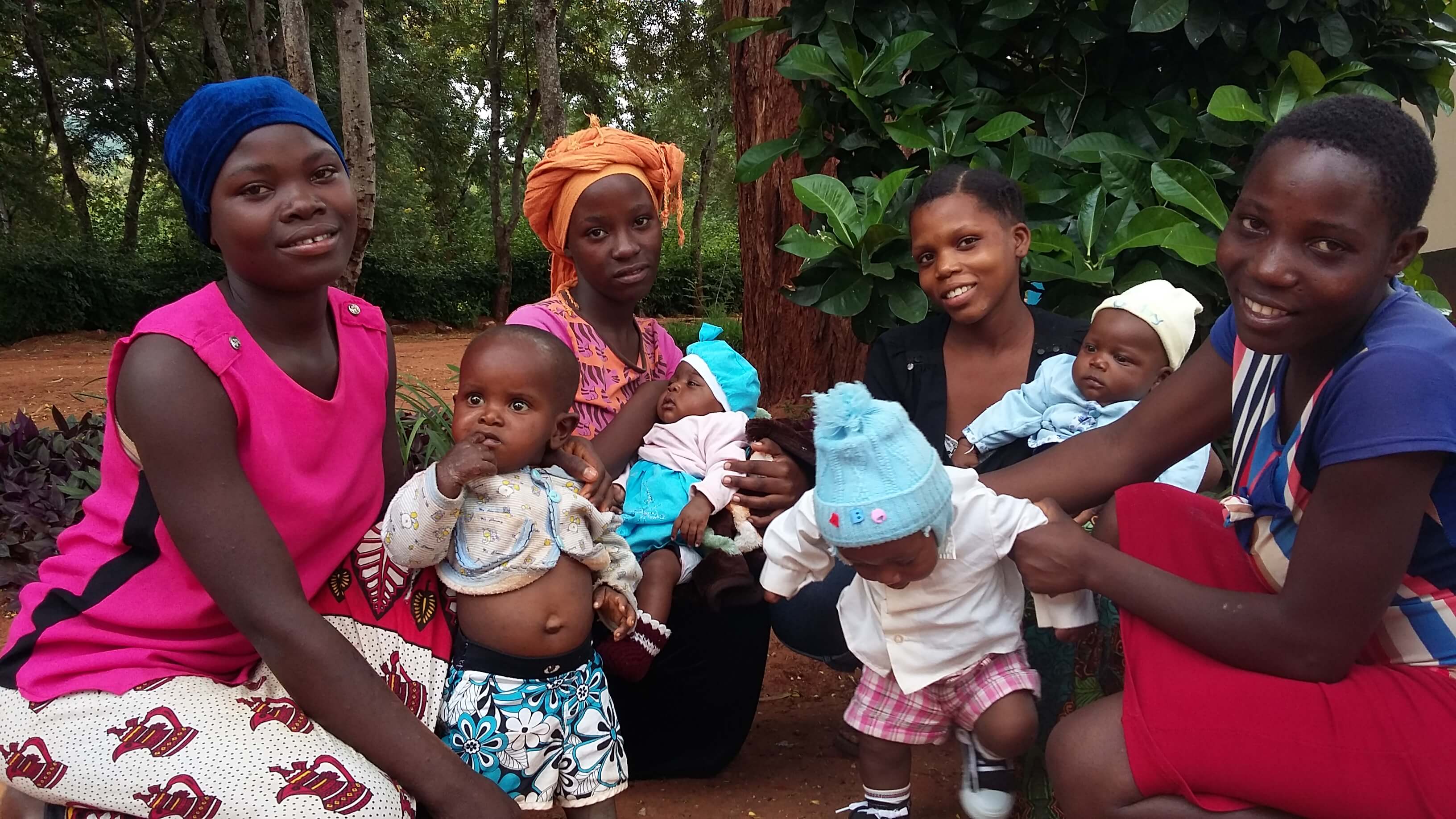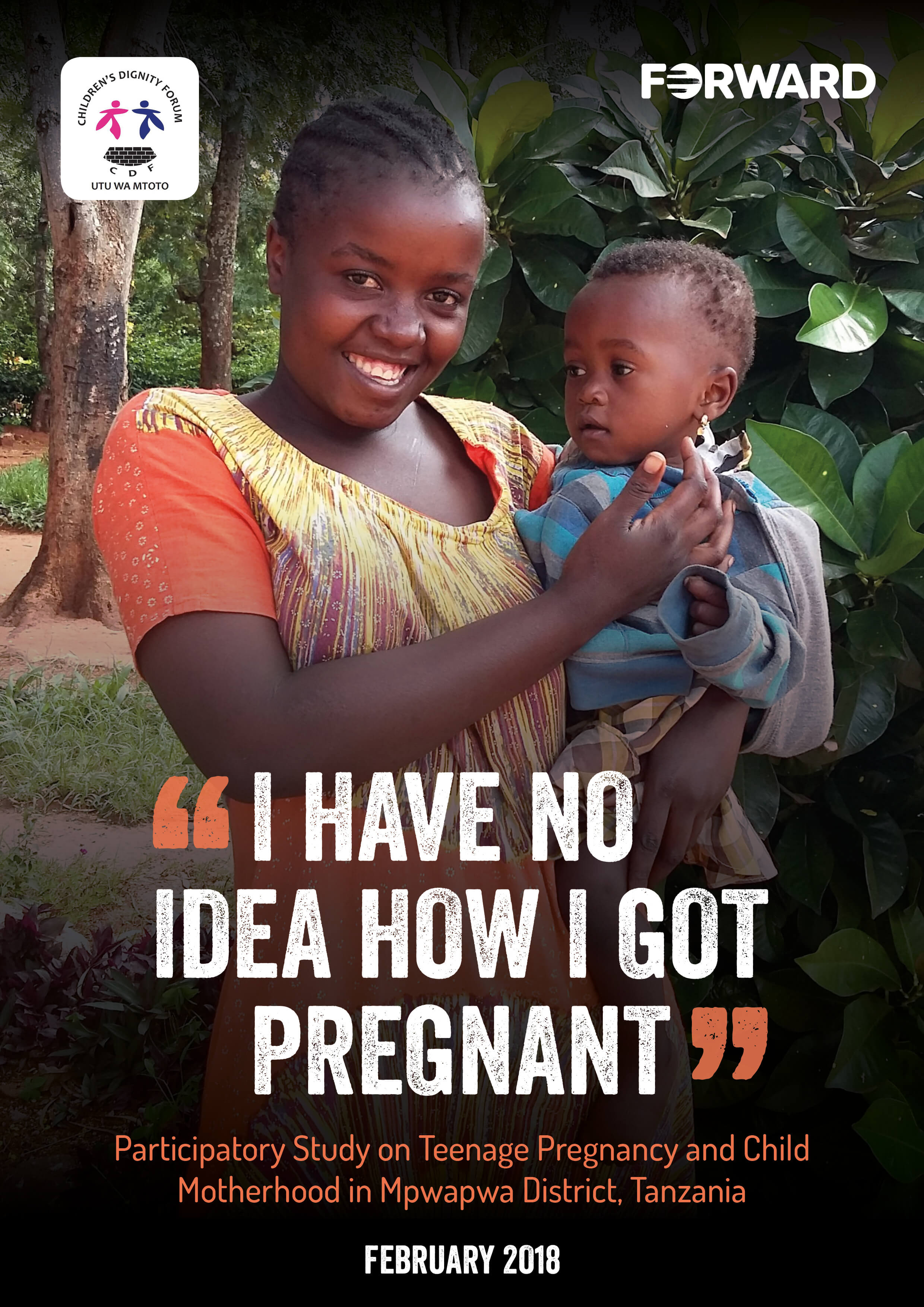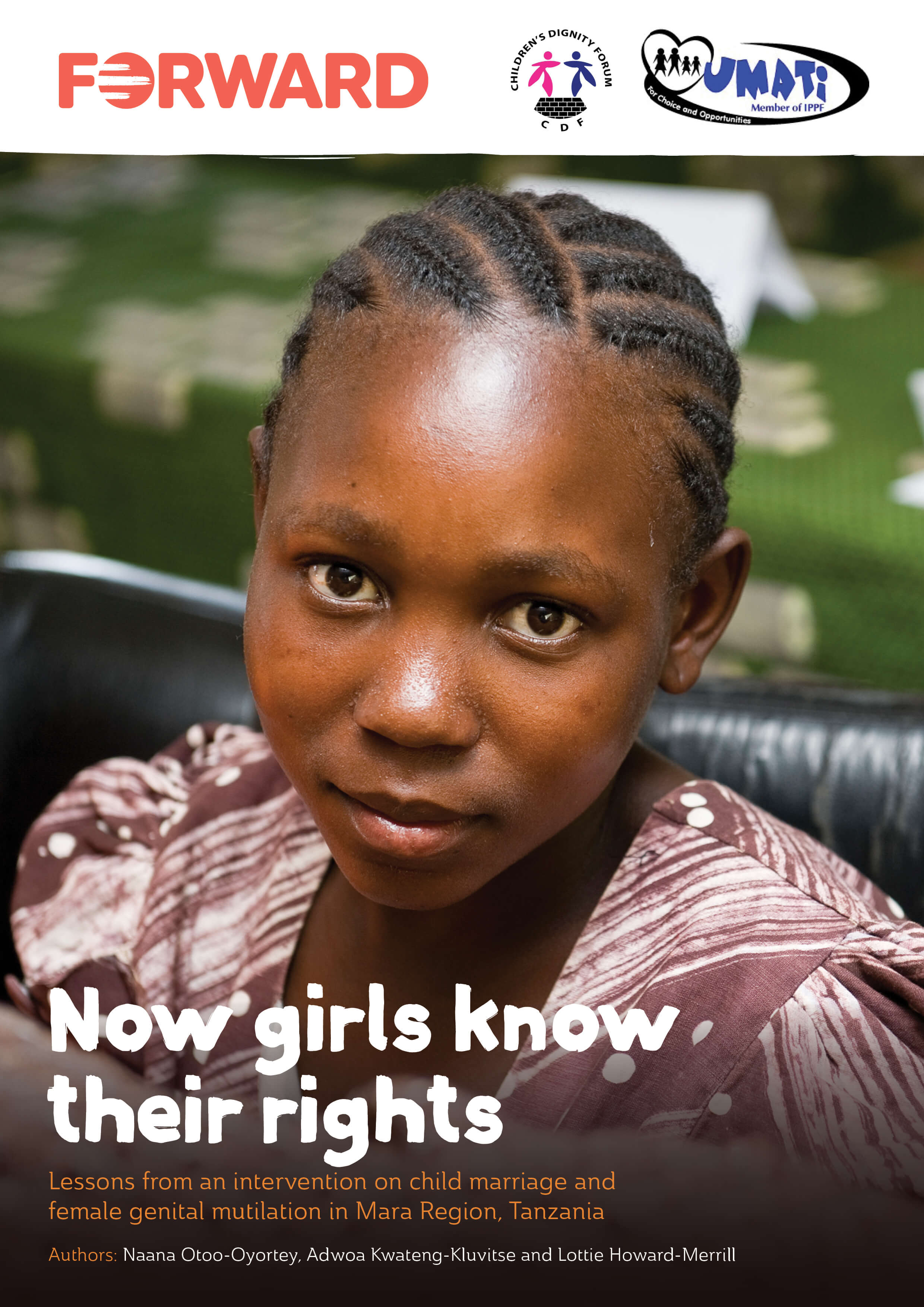Tanzania’s context
FORWARD works in regions with the highest prevalence of violence against women and girls. FGM has been illegal in Tanzania since 1998 but the law remains largely unenforced and it is estimated that at least 7.9 million women and girls living in Tanzania today have undergone FGM.
The reasons for FGM are diverse and vary from region to region. In Mara region, for example, FGM is seen as a rite of passage into adulthood which means that once a girl has been cut she can be marketed for a husband, whereas in Singida region girls undergo FGM while they are still babies. Child marriage is also a frequent occurrence; in the Mara region, where one of FORWARD’s partner projects is based, as many as 2 in 5 girls are married before the age of 18 and over 8,000 girls drop out or are forced out of school each year due to pregnancy. Usually, once a girl drops out of school to get married she will never go back.
Girls can legally be married from the age of 15 with the consent of parents or guardians and girls can be married from the age of 14 with the approval of a court if they are pregnant. Across Tanzania 7% of girls are married by the age of 15 and nearly a quarter of girls aged 15-19 are pregnant or have at least one child.



